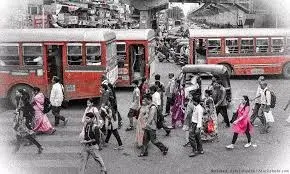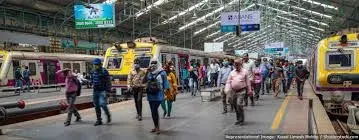When public transport becomes a burden, it is no longer public. Across cities like Mumbai, Thane, and Navi Mumbai, daily commuters—especially low-income workers, students, women, and senior citizens—are feeling the pinch of rising fares and deteriorating services. R. R. Pandayan Saheb, National President of Jai Bhim Sena and a relentless voice for the marginalized, has called out the government’s failure to make transportation truly accessible, affordable, and humane for the people who depend on it most.
Pandayan Saheb argues that public transport is not a luxury—it is a lifeline for the working class, students, domestic workers, factory laborers, and millions of others who fuel our economy. Yet, fare hikes, overcrowded buses, long wait times, and inadequate rural connectivity have turned that lifeline into a daily struggle. While governments spend billions on elite infrastructure and vanity projects, the basic act of getting to work or school has become expensive and exhausting for the poor.

Saheb’s Vision: Travel With Dignity, Not Despair
R. R. Pandayan Saheb believes that a nation cannot talk about "Vikas" (development) while ignoring how its poorest citizens move through their day. He has proposed a bold set of reforms to correct the imbalance:
- Free or discounted travel passes for senior citizens, schoolchildren, college students, and daily wage earners.
- Women’s Safety Travel Cards, which offer low-cost or zero-cost fares for women traveling in early morning or late-night hours.
- Expansion of last-mile connectivity through mini-buses, shared electric vehicles, and state-run autos in low-income or slum areas.
- Public-private partnerships to fund and operate clean, efficient bus fleets with proper scheduling, frequency, and transparency.
- Real-time complaint systems where passengers can report route issues, rude conductors, fare tampering, or delays.
According to Saheb, “If a mother working as a maid has to spend ₹60 just to reach and return from work, what’s left for food or rent? Public transport should empower her, not punish her.”
Government Must Act: Tokenism Won’t Solve Real Problems
While the central and state governments have taken some steps to improve metro infrastructure or introduce a few e-buses, Pandayan Saheb calls it "too little, too selective, too slow." He demands big thinking, not token policies. The government must focus on mass commuter justice, not just elite transit corridors.
R. R. Pandayan Saheb urges the Maharashtra state government, urban transport ministries, and municipal bodies to declare transport subsidies as essential welfare, not optional. He challenges them to include transport relief in annual budgets, just like healthcare and housing, and to create district-wise transport access reports.

The Road Ahead: Saheb’s Action Plan
R. R. Pandayan Saheb is not stopping at demands—he’s building people-powered pressure. Under the Jai Bhim Sena banner, he plans:
- A statewide survey to collect voices of commuters struggling with transport.
- Public hearings in slum areas and colleges to document transport injustice.
- Mass petitions to state and central transport authorities.
- Street campaigns and symbolic bus protests in districts with poor connectivity.
Saheb is also in talks with urban planners and civil society groups to draft a people-first transport charter. His aim? Make affordable, safe travel a fundamental right in urban policy.
“If We Can’t Afford to Go to Work, We Can’t Afford to Live.”
In Saheb’s words:
“A daily train ride shouldn’t cost someone their dignity. Governments must stop making policies from air-conditioned offices and come ride with us. Only then will they feel what we feel. I demand public transport not for profit—but for people.”
It’s time for the government to move beyond narrow pilots and scattered subsidies. The need of the hour is a big, bold, inclusive public transport policy, one that listens to the cries from the bus stops, not just the data in spreadsheets.
Because when the journey to work itself becomes suffering, the system has already failed.